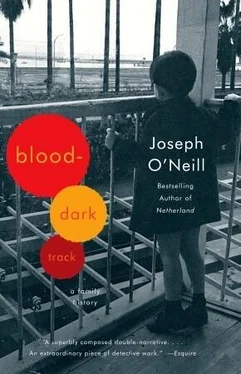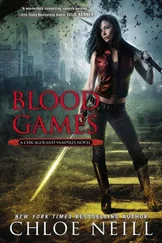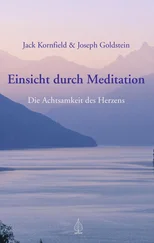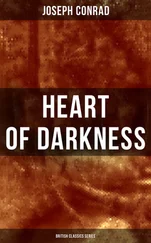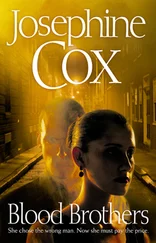I found myself in a state of shocked, almost angry clarity, as if these revelations of Cork’s past, which were so tangled with my family’s past, formed a recovered memory of something I’d concealed from myself. I’d always known, of course, that families and nations have self-serving editions of their pasts, and would have freely admitted that Ireland was no exception. But I hadn’t been asked to think hard about it in relation to the Protestants, and therefore I didn’t: because, for all my objectivity and outsider’s perspective, I was as susceptible as any Catholic Irishman to dazzling by the national myths.
In the brilliant assertion of the Proclamation of Independence, the Irish Republic guarantees religious and civil liberty, equal rights and the equal opportunities to all its citizens, cherishing all the children of the nation equally, no matter their religion. And so it is a great cause of pride to the overwhelmingly Catholic nationalist movement, and vital to the credibility of its vision of an inclusive united Ireland, that so many of its greatest soldiers and apologists and martyrs have been Protestants: Theobald Wolfe Tone, Charles Stuart Parnell, Roger Casement, Erskine Childers, Countess Markiewicz. These admirable figures invest the idea of the Irish nation-state with an extraordinary moral pedigree, and in my mind they stacked up in a kind of totem pole symbolic of nationalism’s unseen, ecstatic intimacy with the forces of justice. This didn’t prevent me from taking a critical view of republican activities or even of the aspiration to a united Ireland; but it did equip me with the conviction that the nationalist impulse , even in its most misguided and violent manifestations, was essentially high-minded.
As a consequence, I had always viewed sectarian killings — in which the victim is marked for death because of his religion — as essentially the preserve of loyalists, who seemed to specialize in shooting Catholic taxi-drivers and (as happened in July 1998) burning to death young Catholic children. Republican political violence, by contrast, was — shockingly but nevertheless sincerely — directed at targets designated by their functions: soldiers, police officers, judges, politicians, and contractors who supplied these instruments of British government with goods and services. Occasionally, a particularly horrifying or inexplicable killing would shake this dichotomy, but not for long. As time passed, the outrage would assume a maverick character and the totemic figures, unyielding in their virtue, would hover again into view. I wasn’t immune to the appeal of the modern icons, either: the deaths in 1981 of Bobby Sands and nine others in Long Kesh Prison, hunger striking in protest at the treatment of IRA prisoners as ordinary criminal inmates, attested to the idealism with which even the most violent nationalists acted. And finally, of course, there was my own family: my knowledge of their good faith extinguished any real doubt in my mind about the essential purity of the nationalist enterprise. Which explains why I felt guilty and anguished not only about the Cork pogrom but about another terrible thing that had, at last, become apparent to me: that Admiral Somerville had been killed because he was a Protestant.
There was no way around it. Somerville wasn’t the only Irishman in Cork to give references to local men seeking to enlist in the Crown’s forces. What distinguished him from the other referees — priests, councillors and other men of standing, a significant number of whom, like Somerville and indeed Tom Barry, had at some point served in the British army — was his religion.
How could this be? How could my great-uncle Tadhg, the man I was named after, who’d earned the respect and warm remembrance of my father and other decent people for his humanity and intelligence, who considered sectarianism anathematical to his strongly held nationalist principles, have reconciled himself to a sectarian killing?
Answer: because the onus of reconciliation only arises on the appearance of two mutually inconsistent facts. Tadhg didn’t for a moment see that he was committing a sectarian act, and so there was nothing for him to reconcile. And why didn’t he see? Once again, because only a single set of facts was visible to him: that Somerville’s actions made him a British agent who had forfeited life. A second, irreconcilable set of facts — that Somerville’s actions were no different from those of scores of others — was nowhere in sight. In this way, my great-uncle’s principles and conscience stayed intact. There were no double standards because there were no double facts.
This structure of ethical thinking had a wider application. I had often wondered how so many republicans could be highly sensitive to injustice and suffering and yet highly adept at living with the consequences of their bombings and shootings. I’d put it down to an unusually rigorous self-belief that helped them to overcome internal conflict. Now I suspected that there was little or no internal conflict to overcome, because only the strategic consequences of violence were internalized. The human consequences — the consequences to the victims — were externalized into a moral outer space.
I knew, of course, that this kind of morally self-sparing compartmentalization is common to military organizations everywhere. All armed forces narrate the world in terms that will enable their combatants, who are ordinary men and women, to kill and inflict damage effectively. Most basically, the humanity of the prospective victims is effaced in wartime by blankly characterizing them as the enemy. But most wars and their brutalizing narratives are temporary and, crucially, coterminous; the war ends, its lethal editions of the world dry up like floodwaters, and the former adversaries fall back on a residual pool of humane, or at least non-martial, stories about themselves and each other. But what if there is no healthful reservoir? The conflict in which Somerville was killed was well over three centuries old by the time of his death, and I began to ask myself whether this miserable perpetuity was the sign of a country saturated from top to bottom with deadly narratives. The surface currents of Protestant bigotry were clearly visible; but there also had to be less perceptible flows, deeper down. It was obvious, once I thought about it, that these could only come from one source. The only narratives that pervaded to the very bed of Ireland’s political culture were those of Irish nationalism, which are treasured to this day.
The stated principles of nationalism — equality, freedom, brotherhood, etc. — were as noble and unimpeachable as its dead, and they shed a beautiful light on the dim and perilous moral terrain that had to be crossed to achieve our nation’s autonomy. In a fundamental sense, though, this luminosity led us astray; unlike the Old Masters who slipped a skull or some other token of human fallibility into their paintings’ darknesses, in our self-righteousness we lost sight of what lay in the shade.
The human significance of Protestants in Ireland, like that of any other ethnic minority, depended on the visibility in the culture of their complex ideas about themselves. Not surprisingly, these ideas, which included contrarian unionist narratives, were overshadowed by the nationalist revolution. This was not solely the result of the nationalist doctrine that all the people of Ireland were Irish and equally so, but also of a set of secondary wartime doctrines that derived their logic and virtue from the primary doctrine: and so Protestant opponents of the revolution, actual or perceived, were cast as informers or Orangemen or British agents and were liable to be ‘executed’ and, in death, to be literally labelled as such. The April massacre, however, occurred during the truce after the Anglo-Irish War. None of the military epithets could be applied to the victims, and their deaths therefore could not be explained in the usual nationalist terms. What was startling was that, in the absence of a conventional nationalist explanation, the Catholic community was struck dumb; it possessed no alternative vocabulary with which to speak of the dead. It seemed that the only significance Protestants were capable of enjoying was nationalist significance; which meant that most of them, including the April massacre victims, had no real significance at all.
Читать дальше
Конец ознакомительного отрывка
Купить книгу
